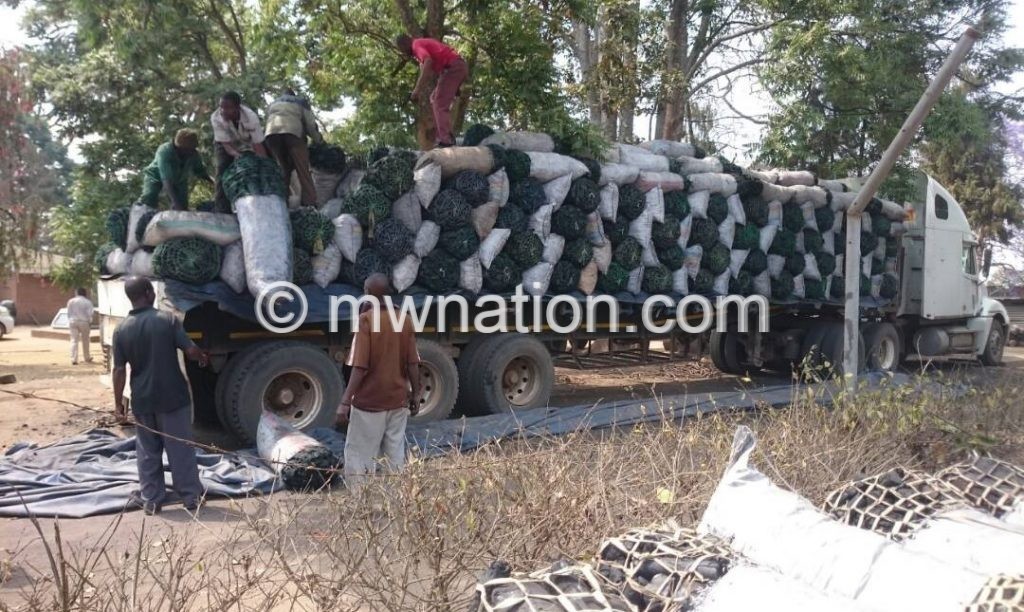Trust for partnerships to save Dzalanyama
Forest degradation in Dzalanyama is impacting on important key ecosystem services offered by the reserve. These services include support to agricultural productivity which enhances food security; habitat for both domestic and wildlife; and the quality and quantity of raw water discharged from the reserve.
“Water is indeed life. Imagine that on a daily basis, Lilongwe urban residents have to clean their teeth, take a bath and have breakfast. All this is possible courtesy of the Dzalanyama Forest Reserve (DFR) where this water comes from,” says Leonard Sefu, Dzalanyama Catchment Conservation Trust (DCCT) board chairperson.

The trust has been engaging the private sector, development partners and government officials on ways to ramp up efforts that would protect the reserve.
The idea behind bringing diverse partners is to develop synergy among them in managing Dzalanyama Forest Reserve and its watershed.
The engagement is being supported by JICA-funded project for Conservation and Sustainable Management of Dzalanyama Forest Reserve (Cosma-DFR).
Sefu says DCCT is an institution that will develop synergies to save the vast ecosystem that has supported human population through provision of food security, biomass energy and water for both domestic and industrial use for so many decades.
“For DCCT to attain its mission there is a need for understanding that conservation activities in DFR require a multi-stakeholder approach which must support the Trust in its many endeavours to save the reserve and its total catchment area,” explains Sefu.
Government found it necessary to establish the trust to assist the management of Dzalanyama and its watershed areas.
The reserve has been experiencing enormous challenges that range from deforestation, encroachment and illegal logging to satisfy the rapid human population particularly in Lilongwe’s urban locations.
According to Sefu, a retired wildlife conservationist, the trust’s vision is to promote responsible and sustainable management and conservation of natural environment and biodiversity, which will in turn ensure the equitable sharing of benefits arising from the reserve.
The trust is expected to work hand in hand with the Department of Forestry, stakeholders and local communities to reduce the above stated challenges facing this important reserve that offers a range of ecosystem services.
Cosma-DFR financial mechanism expert Akihito Sakurai says about 97 percent of most Malawian households rely on firewood or charcoal as their primary source of cooking and heating energy.
“With alternative fuel sources under-developed, firewood and charcoal will continue to form a significant part of Malawi’s energy mix for the next few decades.
“Even in Lilongwe City, almost 90 percent of the population uses charcoal and firewood for cooking and heating. More than 60 percent of charcoal, consumed in Lilongwe City, comes from Dzalanyama. Illegal charcoal production and firewood collection are main causes of deforestation in the reserve,” he says.
The water utility service provider, Lilongwe Water Board (LWB), is one of the major counterpart organisations for Cosma-DFR.
However, it is concerned that continued destruction of the watershed and pollution is affecting the quality and quantity of raw water and subsequently the resultant effect is continued high costs of water treatment.
This is why Forestry Department deputy director Teddie Kamoto emphasizes the role of partnerships.
“Partnerships are key in as far as management of critical ecosystems such as Dzalanyama is concerned. We need partnerships to work together in the management of these forest reserves.
“I am pleased to say that government has now approved recruitment of about 310 forest rangers. It is our expectation that 30 of those will be deployed in Dzalanyama Forest Reserve,” he told the meeting.
Kamoto further observes that DCCT has come at the right time when JICA-supported Project Cosma-DFR, a partner to the Department of Forestry is folding up in early 2022.
This project came following an emergency appeal made in 2014 by Malawi to the Japan, after serious deforestation and forest degradation caused mainly due to illegal charcoal production, illegal logging and firewood consumption was registered in the reserve.
At the time of the appeal, it was estimated that a total of 101 metric tons of charcoal was consumed per year in the three districts that border the reserve namely Lilongwe, Dedza and Mchinji.
Dzalanyama Forest Reserve is a water catchment area whose water supports peripheral communities and those beyond, in terms of water supply for surrounding three districts and Lilongwe City.
The reserve is also a lifeline of Lilongwe and Diamphwe rivers, providing food security and various economic livelihoods benefiting the people.





